
|
Pro Bono Newsletter |
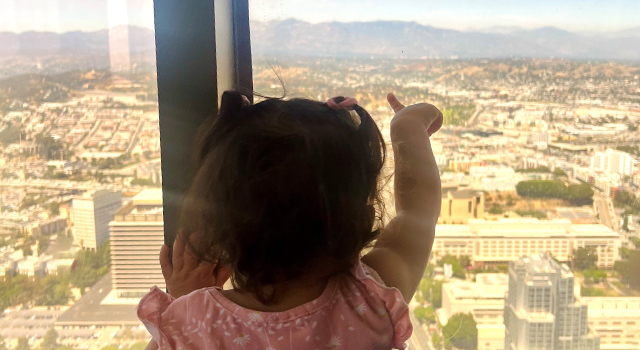
A young relative of a Gibson Dunn immigration client looks out the window of our Los Angeles office.
Hispanic Heritage Month
September 15 – October 15, 2023
As Hispanic Heritage Month draws to a close, we wanted to highlight some of the Firm’s recent pro bono work on behalf of members of the Latinx community. Of course, the Latinx community is incredibly diverse, reflecting a wide range of histories, cultures, and experiences. Our pro bono work on behalf of Latinx clients is similarly broad in scope. We have represented nonprofits and small businesses that serve Latinx individuals, helping to maintain and promote Latinx culture in their wider communities. On a larger scale, we have advocated for students and educators fighting for the freedom to study and discuss Latinx culture. And on an individual level, we have represented clients from throughout Latin America in their immigration proceedings—from political dissidents to LGBTQ+ individuals, and from women who have survived gender-based violence to children who have overcome abuse and neglect. We are proud to help new arrivals in the United States advance on their journey to legal permanent residence and citizenship.
| “I am incredibly proud of the amazing pro bono work Gibson Dunn lawyers do year in and year out, and I feel fortunate to be able to contribute to assisting members of my community who are in need. I am particularly proud of the work our attorneys have done on behalf of Hispanic clients, from representing young children from Latin America as they begin new chapters of their lives in the United States, to advocating on behalf of Hispanic veterans who bravely served the United States.” |  Kate Dominguez |
Advising Latinx-Owned Small Businesses
In recent years, the Firm has worked closely with Start Small Think Big (“SSTB”), a nonprofit focused on advancing equity and inclusion in entrepreneurship by connecting small businesses with pro bono legal services. Hundreds of Gibson Dunn attorneys have advised SSTB businesses on a broad array of corporate and transactional matters, from lease and contract reviews to entity formation work, and from employment advice to counseling on doing business online. |
| “Through SSTB, I had the opportunity to work with a small business owner to help her expand her art studio business to an additional location in the Bay Area. Our pro bono work helped this business owner negotiate an advantageous lease agreement with her landlord. During these difficult economic times we were aware of the financial difficulties of operating a small business, so it was a privilege helping this small business navigate their expansion.” | 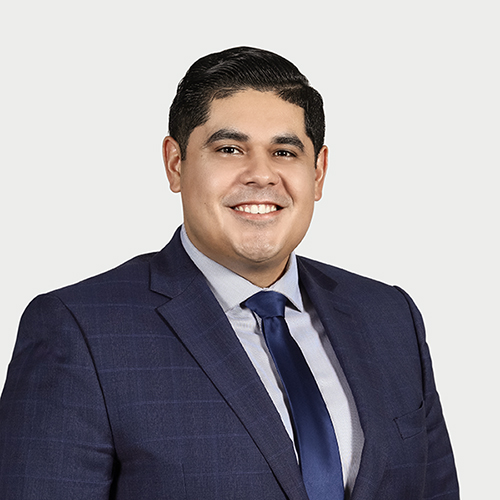 Miguel Mauricio |
New York Healthy Food BusinessThis year, a team of Gibson Dunn attorneys began working with Ms. T, the owner of a culinary and nutrition education program that educates youth in the Bronx to prepare and consume healthy foods. Ms. T’s mission is to provide food education and encourage low-income communities to consume nutritious food options by sharing the culture, history, and traditions of Latin cuisine from Spain to Puerto Rico. Ms. T hosts private cooking classes and corporate experiences and sells kitchenware and other goods on an online shop. She also co-hosts a podcast featuring Latinx artists, entrepreneurs, writers, and entertainers. When Ms. T needed help with her website, SSTB referred her to the Firm. Yair Galil and Ruby Lang, with supervision from Daniel Angel, reviewed her website policies and helped her implement appropriate updates. |
California Bottled Salsa BusinessAnother Gibson Dunn team has been working with Ms. N, the owner of an e-commerce business selling a versatile bottled salsa with a spicy and crunchy flavor. Ms. N, who grew up in Mexico and now lives in California, began making her salsas at home during the pandemic as a way to reconnect with her Mexican culture and to bring some of the best flavors of her Mexican hometown into homes across the United States. After receiving a referral from SSTB earlier this year, Tukeni Obasi, Steven Wright, and Joseph Orien began providing Ms. N corporate governance advice, including regarding business registration and corporate compliance requirements. |
LatinoJustice Amicus
Gibson Dunn recently represented LatinoJustice PRLDEF, a national civil rights organization dedicated to advancing justice and equity for Latinx communities in the United States, in filing an amicus brief in support of a challenge to Florida’s Stop W.O.K.E. Act. Florida enacted the Stop W.O.K.E. Act in April 2022, prohibiting the teaching of certain concepts relating to race and sex, including that unconscious racial bias continues to exist in society. Plaintiffs challenged the law on First and Fourteenth Amendment grounds later that year. |
| “As a former LatinoJustice intern, it was a pleasure reconnecting and partnering with the LatinoJustice team. As a Florida native of Hispanic heritage, these issues hit particularly close to home. We were all moved by the students’ and professors’ willingness to speak candidly with us and the court about the impacts the Act has had on their passions, communities, families, and mental health. It was a privilege to be entrusted with their stories and with the task of conveying their importance to the court.” |  Katarina Delgado |
Immigration
Each year, the Firm dedicates tens of thousands of pro bono hours to work on behalf of the immigrant community, including many immigrants from Latin America. Last year, hundreds of Gibson Dunn attorneys devoted nearly 40,000 total hours to pro bono matters defending the rights of the immigrant community and advocating on behalf of individual immigrant and refugee clients. |
| “As a Latina immigrant myself, I am always happy to take on any opportunity the Gibson Pro Bono Department presents to contribute to my community. Being able to provide an 8-year-old a sense of calm and safety, a grieving mother a sense of hope and resilience, and a traumatized member of the LGBTQ community a sense of empowerment is the most rewarding aspect of our work and illustrates how valuable our time can be to the lives of fellow immigrants trying to navigate the intricacies of the U.S. legal system.” |  Daniela Tapia Devia |
Asylum
In July 2023, a Gibson Dunn team secured a grant of asylum for pro bono client Ms. X, who fled to the United States from El Salvador in 2016 to escape targeted gang violence. As a teenager, Ms. X endured death threats and assault at the hands of the 18th Street Gang. Her family was staunchly opposed to the gang’s control of their community and her grandmother, in particular, repeatedly voiced her opposition to the gang. Multiple members of Ms. X’s family also reported the gang’s activities to the police, leading to reprisals by the gang (including the murder of one of her cousins). As Ms. X’s family gained a reputation for opposing the gang and cooperating with the police, the gang’s persecution of the family escalated. Tensions came to a head when Ms. X bravely agreed to meet with the gang’s local leader to try to negotiate an end to the gang’s torment of her family. The leader demanded that Ms. X “be his woman” and assaulted her. Ms. X survived the encounter and fled for the United States shortly thereafter. |
Special Immigrant Juvenile Status
Last month, the Firm secured guardianship and special findings orders in Brooklyn Family Court on behalf of a 20-year-old Honduran client. With diligent preparation and effective advocacy, the Gibson Dunn team overcame procedural hurdles to secure this important predicate order just one week before the client would have aged out of the Court’s protection. Armed with these orders, the team will now help the client petition USCIS for Special Immigrant Juvenile Status, a status that allows children who have been abused, abandoned, or neglected to apply for lawful permanent residence in the United States. |
| “As a first-year with a transactional practice, navigating a Kings County Family Court proceeding was challenging, but helping our client secure the predicate order she needed to obtain Special Immigrant Juvenile Status was a highlight of my first year at the firm. The experience made me a better lawyer. I am grateful to work at a firm that values and devotes resources to this kind of work, and I look forward to incorporating it into my practice in the years to come.” | 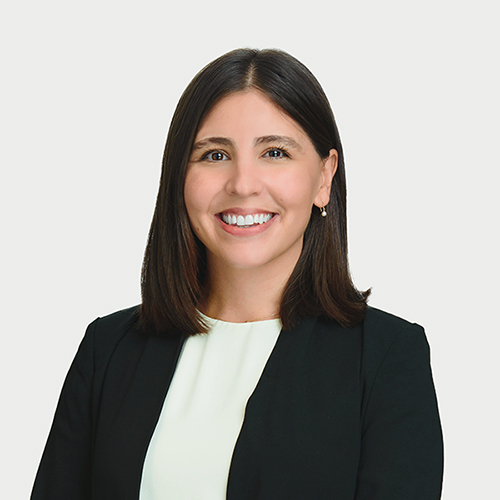 Alejandra Castañeda |
Kids in Need of Defense (KIND) Clinic
In July, attorneys in the LA office—from summer associates to partners—came together to participate in a day-long immigration screening clinic for KIND, one of the Firm’s longstanding pro bono partners. After attending a live training led by KIND staff, teams of attorneys met with nine immigrant children ranging in age from eight to sixteen years old. During these meetings, our teams helped evaluate the children’s eligibility for various forms of immigration relief, including Special Immigrant Juvenile Status and asylum. We are proud to report that Gibson Dunn teams have committed to taking on the representation of each child who was enrolled in the clinic!
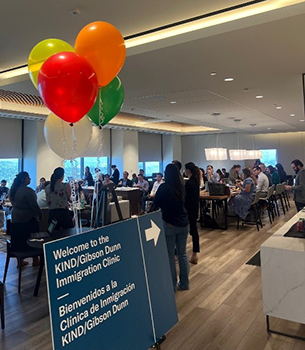
|
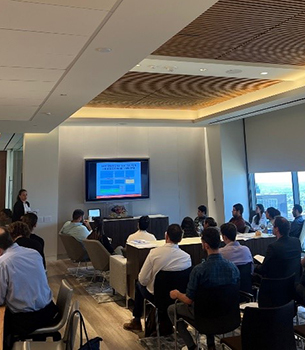
|
|
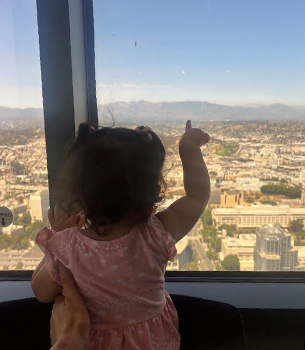
|
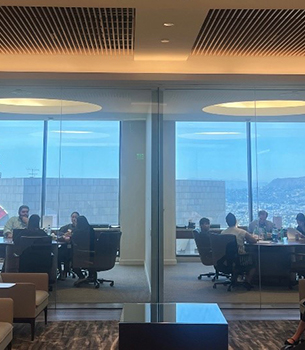
|
|
Appellate Advocacy
In July 2023, Gibson Dunn secured a significant victory for pro bono client Mr. S.G. in the U.S. Court of Appeals for the Fourth Circuit. The case, which involved (among other issues) whether individuals can seek immigration relief based on persecution for membership in a particular social group of extended family members, has important ramifications for others seeking statutory withholding of removal and asylum. In a 2-1 published decision, the Fourth Circuit reiterated that particular social groups of extended family members are legally cognizable, and it admonished the Board of Immigration Appeals ( “BIA”) for failing to apply the Court’s binding precedent on the issue. The Court also thanked Gibson Dunn—who has been representing Mr. S.G. for many years, through various rounds before the agency, as well as in separate conditions of confinement litigation tied to the COVID-19 pandemic—for its “admirabl[e]” pro bono service. |
Attorney Advertising: These materials were prepared for general informational purposes only based on information available at the time of publication and are not intended as, do not constitute, and should not be relied upon as, legal advice or a legal opinion on any specific facts or circumstances. Gibson Dunn (and its affiliates, attorneys, and employees) shall not have any liability in connection with any use of these materials. The sharing of these materials does not establish an attorney-client relationship with the recipient and should not be relied upon as an alternative for advice from qualified counsel. Please note that facts and circumstances may vary, and prior results do not guarantee a similar outcome.
If you would prefer NOT to receive future emailings such as this from the firm, please reply to this email with "Unsubscribe" in the subject line.
If you would prefer to be removed from ALL of our email lists, please reply to this email with "Unsubscribe All" in the subject line. Thank you.
© 2023 Gibson, Dunn & Crutcher LLP. All rights reserved. For contact and other information, please visit us at gibsondunn.com